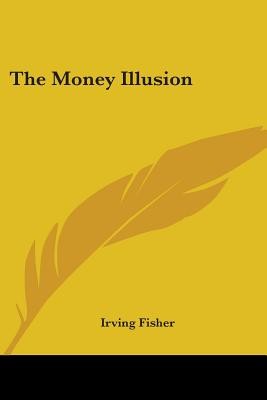
- We will send in 10–14 business days.
- Author: Irving Fisher
- Publisher: Kessinger Publishing
- ISBN-10: 1428633820
- ISBN-13: 9781428633827
- Format: 15.2 x 22.9 x 1.5 cm, minkšti viršeliai
- Language: English
- SAVE -10% with code: EXTRA
Reviews
Description
In economics, money illusion refers to the tendency of people to think of currency in nominal, rather than real, terms. In other words, the numerical/face value (nominal value) of money is mistaken for its purchasing power (real value). This is false, as modern fiat currencies have no inherent value and their real value is derived from their ability to be exchanged for goods and used for payment of taxes. The term was coined by John Maynard Keynes in the early twentieth century. Almost every one is subject to the "Money Illusion" in respect to his own country's currency. This seems to him to be stationary while the money of other countries seems to change. It may seem strange but it is true that we see the rise or fall of foreign money better than we see that of our own.-Irving Fisher
EXTRA 10 % discount with code: EXTRA
The promotion ends in 23d.17:09:12
The discount code is valid when purchasing from 10 €. Discounts do not stack.
- Author: Irving Fisher
- Publisher: Kessinger Publishing
- ISBN-10: 1428633820
- ISBN-13: 9781428633827
- Format: 15.2 x 22.9 x 1.5 cm, minkšti viršeliai
- Language: English English
In economics, money illusion refers to the tendency of people to think of currency in nominal, rather than real, terms. In other words, the numerical/face value (nominal value) of money is mistaken for its purchasing power (real value). This is false, as modern fiat currencies have no inherent value and their real value is derived from their ability to be exchanged for goods and used for payment of taxes. The term was coined by John Maynard Keynes in the early twentieth century. Almost every one is subject to the "Money Illusion" in respect to his own country's currency. This seems to him to be stationary while the money of other countries seems to change. It may seem strange but it is true that we see the rise or fall of foreign money better than we see that of our own.-Irving Fisher


Reviews